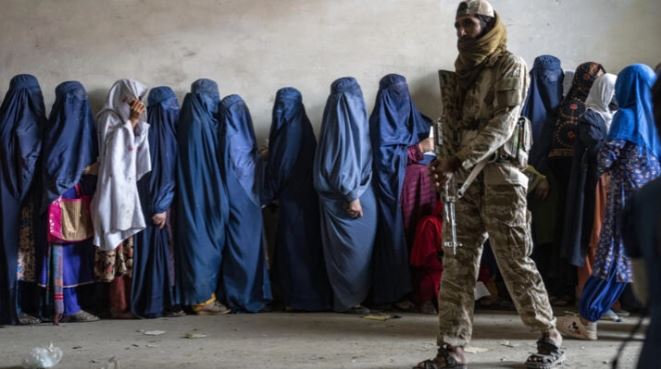Afghan Women Face Increasing Oppression Under Taliban Rule as Global Response Falters
Afghanistan remains one of the poorest countries globally, and the situation for Afghan women has only worsened since the Taliban regained control three years ago. Recent Taliban policies have further eroded women’s rights, with a new set of laws issued on August 21 aimed at regulating nearly every aspect of Afghan social and private life, with a particular focus on women.
The 114-page document mandates that women cover themselves completely in public and prohibits them from speaking out publicly. The UN Human Rights Office has condemned these laws, describing them as a direct assault on women’s existence. Chekeba Hachemi, president of Free Afghanistan, stated that the new regulations seem designed to “slowly kill” women’s presence in public life.
Despite international condemnation from the UN, the European Union, and various human rights organizations, the Taliban has continued to enforce these restrictive measures. The UN has called for the immediate repeal of these laws, which reflect a broader trend of increasing repression.
Human Rights Watch (HRW) and the EU have decried the new laws as a significant setback for women’s rights in Afghanistan. The EU also warned that these developments create further barriers to normalizing relations with Afghanistan, stressing that European recognition of the Taliban regime hinges on the respect for international obligations and Afghan human rights.
The Taliban, in turn, has dismissed these criticisms, labeling them as Western arrogance and gender-based apartheid. On the same day the new laws were announced, the UN special rapporteur on human rights in Afghanistan, Richard Bennett, was barred from entering the country, highlighting the increasing isolation of the Taliban regime.
Initially, there was some optimism regarding the Taliban’s willingness to engage with the international community, but this hope quickly dissipated. As international recognition and access to frozen assets did not materialize, the Taliban reverted to strict domestic policies, reinforcing their control.
The ongoing situation reflects a grim reality where the Taliban’s domestic policies overshadow international concerns about human rights. Mélissa Cornet, a gender issues specialist, notes that the regime’s focus on security and control has made it difficult for the international community to exert meaningful influence.
The international community’s response has been limited by geopolitical considerations and a reluctance to engage directly with the Taliban. This passive stance has left Afghan women increasingly marginalized, as their rights continue to be systematically stripped away.
Amidst this, Afghan women are actively resisting and seeking to raise awareness. Despite facing severe restrictions, they have used social media and other platforms to protest and assert their right to exist and be heard. The hashtag #LetUsExist has become a symbol of their defiance and resilience in the face of growing oppression.










